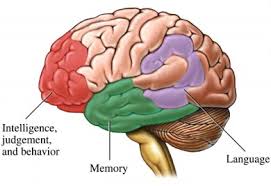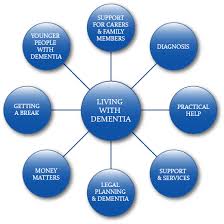How To Live With Dementia

The word “Dementia” is commonly used, but misunderstood by many. Dementia is not a disease but a collection of symptoms that result from damage to the brain, and these symptoms can be caused by a number of conditions – the most common, Alzheimer’s disease. We take a look at the key facts, common symptoms associated with the most common form of dementia , and also ways you can care for loved ones suffering;
Key Facts

Symptoms
Common symptoms of Alzheimer’s disease and other forms of dementia include:
Note: It is important to talk to your GP sooner rather than later if you are worried that you or a loved one have any of the above symptoms.
Caring For Dementia
Dementia is progressive, therefore this means the brain will become more damaged over time, with symptoms changing and becoming gradually more severe. When a person with dementia finds that their abilities are declining, they’re often feel anxious, therefore it is important to help them feel as secure and confident in their own abilities.
It is also important to help those suffering to keep an element of their independence, and help build their confidence – tasks such as shopping and cooking are great for this. There are a range of dementia care products available on the market, such as activities for people with dementia, mobility support aids, products to improve bathing safety and assistive devices, all designed to make both those with dementia and their carer’s lives easier and more supported.
As the illness progresses and daily tasks may become difficult to manage independently, dementia aids and additional support can help those suffering get on with their day to day lives.
To find out more about the range of dementia products visit www.uksmobility.co.uk
